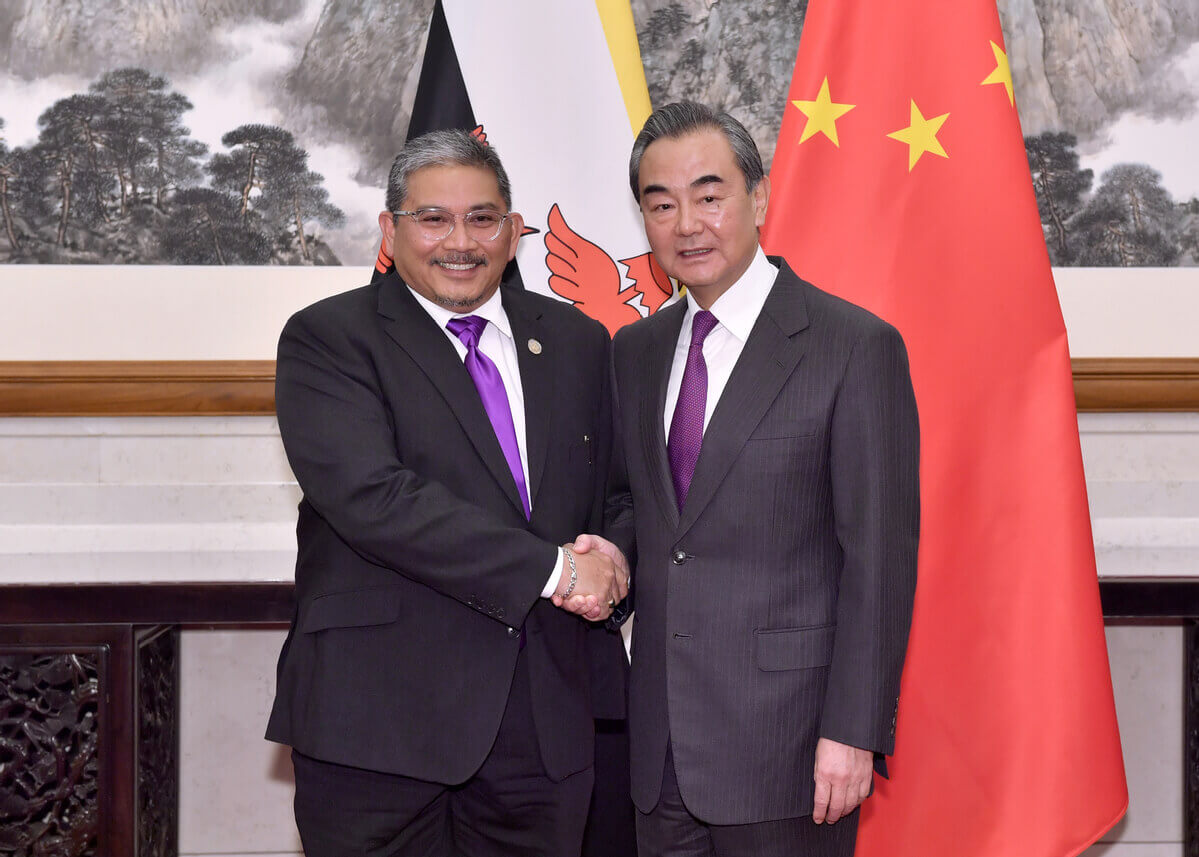On Wednesday, Chinese diplomats held meetings with officials from Turkey, Iran, Iraq, and the Association of Southeast Asian Nations (ASEAN).
Turkey
In a phone conversation, State Councilor and Foreign Minister (FM) Wang Yi and Turkish FM Mevlüt Çavuşoğlu exchanged ideas on the situation in Afghanistan.
Wang said that with the departure of the US troops, Afghanistan could finally implement the “Afghan-led, Afghan-owned” principle. He said the Afghan Taliban now needs to crack down on the international terrorist organisations designated by the United Nations Security Council (UNSC), including the East Turkistan Islamic Movement.
Çavuşoğlu agreed that all parties in Afghanistan should search for an inclusive solution to prevent the country from becoming “the birthplace of terrorism” again.
Iran
In a phone conversation with Iranian President Ebrahim Raisi, Chinese President Xi Jinping said the plan for China-Iran comprehensive cooperation has “opened up broader prospects for deepening bilateral win-win cooperation.” He added that both sides must actively promote the Belt and Road Initiative.
Raisi congratulated Xi on the 50th anniversary of the establishment of diplomatic ties between Iran and China. He also thanked China for supporting Iran in the fight against the COVID-19 pandemic and appreciated China’s “fair position” on the Iranian nuclear issue.
Iraq
In a conversation with Iraqi President Barham Salih, President Xi stressed that China “firmly supports Iraq’s efforts to defend its national sovereignty, independence and territorial integrity, fight against terrorism, and safeguard its national security and stability.”
Barham responded that his government hopes to strengthen anti-pandemic cooperation with China and expand bilateral cooperation on trade and investment and exchanges and cooperation in areas such as culture, tourism, youth, and sports.
ASEAN
Wang said China would deliver a batch of vaccines to Brunei as soon as possible in a phone conversation with the Special Envoy of ASEAN to Myanmar and Bruneian Second Minister of Foreign Affairs Erywan bin Pehin Yusof.
Regarding Myanmar, Wang offered the following suggestions:
- Deal with all parties in Myanmar rationally and pragmatically and gradually build trust.
- Give top priority to helping Myanmar fight against COVID-19, and ensure the accessibility and effectiveness of the anti-pandemic assistance.
- Remain patient and determined, stick to the direction of promoting peace through talks, return state power to the people in an orderly manner and restart the democratic process, which not only serves the interests of Myanmar but also meets the expectations of the international community
- Stay vigilant against and oppose interference in Myanmar’s internal affairs by extraterritorial forces, and earnestly respect Myanmar’s sovereignty and the choice of its people.
Erywan responded that Myanmar is an important member of the ASEAN family. He added, “As ASEAN’s special envoy to Myanmar, I will be dedicated to pushing forward the implementation of the five-point consensus, advancing dialogue among relevant parties in the ASEAN way, stopping violence, promoting inclusiveness, and helping Myanmar fulfil its commitments to the international community.”
United States (US)
Wang spoke with US Secretary of State Antony Blinken on Monday. The duo exchanged views on the situation in Afghanistan and China-US relations.
Wang accused the US of a hasty withdrawal from Afghanistan that caused “a severely adverse impact on the situation” and blamed Washington for shrugging responsibility from the “new problems” created as a result. He added that the US should play a “constructive role in helping Afghanistan maintain stability, prevent chaos and rebuild peacefully.”
Wang also stressed that it is “dangerous and wrong” that the US announced the removal of the Eastern Turkistan Islamic Movement from its list of terrorist organisations and accused America of applying double standards to counterterrorism.
“The United States cannot, on the one hand, work hard to contain and suppress China and undermine China’s legitimate rights and interests, and on the other hand, count on China’s support and cooperation. Such logic has never existed in international exchanges. China and the United States differ in ideology, social system, history and culture. It is an objective fact, and no one can change the other. The right thing to do is to work together based on mutual respect to find a way for the two major countries to coexist peacefully,” Wang said.
Blinken agreed that the common goal for the US and China is to realise peaceful coexistence despite apparent differences. He also added that their differences could be gradually resolved constructively.
“The evolution of the situation in Afghanistan once again shows that it is very important for the United States and China to cooperate on regional security issues in a constructive and pragmatic manner,” Blinken said.

